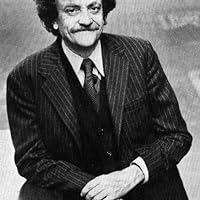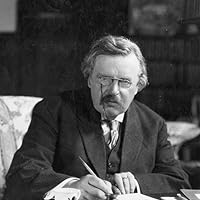Virtues And Vices Quotes
Quotes tagged as "virtues-and-vices"
Showing 1-30 of 33

“There has to be a cut-off somewhere between the freedom of expression and a graphically explicit free-for-all.”
― Brushstrokes of a Gadfly
― Brushstrokes of a Gadfly

“The universe is all about balance. The forces of light and darkness are meant to keep a check on one another. If one becomes too powerful and starts overrunning the other, that balance will be upset. For the tyranny of virtue is as unbearable as the stranglehold of vice.”
― The Guardians of the Halahala
― The Guardians of the Halahala

“It is not the stars that make us, Dr. Butts, it is circumstance and necessita, the choices we make under pressure; our virtues make us, but virtues are not enough, we must deploy our vices at times. Or don't you agree?”
― Wolf Hall
― Wolf Hall

“Father Brendan Flynn: "A woman was gossiping with her friend about a man whom they hardly knew - I know none of you have ever done this. That night, she had a dream: a great hand appeared over her and pointed down on her. She was immediately seized with an overwhelming sense of guilt. The next day she went to confession. She got the old parish priest, Father O' Rourke, and she told him the whole thing. 'Is gossiping a sin?' she asked the old man. 'Was that God All Mighty's hand pointing down at me? Should I ask for your absolution? Father, have I done something wrong?' 'Yes,' Father O' Rourke answered her. 'Yes, you ignorant, badly-brought-up female. You have blamed false witness on your neighbor. You played fast and loose with his reputation, and you should be heartily ashamed.' So, the woman said she was sorry, and asked for forgiveness. 'Not so fast,' says O' Rourke. 'I want you to go home, take a pillow upon your roof, cut it open with a knife, and return here to me.' So, the woman went home: took a pillow off her bed, a knife from the drawer, went up the fire escape to her roof, and stabbed the pillow. Then she went back to the old parish priest as instructed. 'Did you gut the pillow with a knife?' he says. 'Yes, Father.' 'And what were the results?' 'Feathers,' she said. 'Feathers?' he repeated. 'Feathers; everywhere, Father.' 'Now I want you to go back and gather up every last feather that flew out onto the wind,' 'Well,' she said, 'it can't be done. I don't know where they went. The wind took them all over.' 'And that,' said Father O' Rourke, 'is gossip!”
― Doubt, a Parable
― Doubt, a Parable

“Beauty is more popular than virtues because it is more visible than virtues.”
― Wealth of Words
― Wealth of Words

“They say, love God, for it is the greatest virtue. I say, love humans, for there is no greater virtue, no greater religion, than the love of humanity.”
―
―
“The modern world has forgotten the necessity of encouraging men to be better. They speak of sick men or healthy men, of interesting people or uninteresting people; they never, or seldom, indicate that there is and must be an interior and spiritual improvement in man before any of the glowing coals of humanity can be reached. They have cultivated everything but the goodness of man. The result of such shallowness is everywhere apparent.”
― How to Improve Your Personality by Reading
― How to Improve Your Personality by Reading

“From thee, even from thy virtue!
What's this, what's this? Is this her fault or mine?
The tempter or the tempted, who sins most?
Ha!
Not she: nor doth she tempt: but it is I
That, lying by the violet in the sun,
Do as the carrion does, not as the flower,
Corrupt with virtuous season. Can it be
That modesty may more betray our sense
Than woman's lightness? Having waste ground enough,
Shall we desire to raze the sanctuary
And pitch our evils there? O, fie, fie, fie!
What dost thou, or what art thou, Angelo?
Dost thou desire her foully for those things
That make her good? O, let her brother live!
Thieves for their robbery have authority
When judges steal themselves. What, do I love her,
That I desire to hear her speak again,
And feast upon her eyes? What is't I dream on?
O cunning enemy, that, to catch a saint,
With saints dost bait thy hook! Most dangerous
Is that temptation that doth goad us on
To sin in loving virtue: never could the strumpet,
With all her double vigour, art and nature,
Once stir my temper; but this virtuous maid
Subdues me quite. Even till now,
When men were fond, I smiled and wonder'd how.”
― Measure for Measure
What's this, what's this? Is this her fault or mine?
The tempter or the tempted, who sins most?
Ha!
Not she: nor doth she tempt: but it is I
That, lying by the violet in the sun,
Do as the carrion does, not as the flower,
Corrupt with virtuous season. Can it be
That modesty may more betray our sense
Than woman's lightness? Having waste ground enough,
Shall we desire to raze the sanctuary
And pitch our evils there? O, fie, fie, fie!
What dost thou, or what art thou, Angelo?
Dost thou desire her foully for those things
That make her good? O, let her brother live!
Thieves for their robbery have authority
When judges steal themselves. What, do I love her,
That I desire to hear her speak again,
And feast upon her eyes? What is't I dream on?
O cunning enemy, that, to catch a saint,
With saints dost bait thy hook! Most dangerous
Is that temptation that doth goad us on
To sin in loving virtue: never could the strumpet,
With all her double vigour, art and nature,
Once stir my temper; but this virtuous maid
Subdues me quite. Even till now,
When men were fond, I smiled and wonder'd how.”
― Measure for Measure

“It takes a man of unusual character to openly confront his own shortcomings. It’s so much more convenient to blame others.”
― King of Foxes
― King of Foxes

“We hardly said anything, we seemed to communicate through the chessmen, there was something very symbolic about my winning. That he wished me to feel. I don’t know what it was. I don’t know whether it was that he wanted me to see my “virtue” triumphed over his “vice” or something subtler, that sometimes losing is winning.”
― The Collector
― The Collector

“There are some faults so nearly allied to excellence, that we can scarce weed out the vice without eradicating the virtue.”
― The Good-Natured Man a Comedy in Five Acts
― The Good-Natured Man a Comedy in Five Acts

“Some people find love right away, while others don't. I haven't, but will when the time is right.”
―
―

“Virtue and vice are concepts invented by human beings, words for a morality which human beings arbitrarily devised.”
― No Longer Human
― No Longer Human

“La virtud, habrá aún quien lo ignore, siempre encuentra escollos en el durísimo camino a la perfección, pero el pecado y el vicio se ven tan favorecidos por la fortuna...”
― Blindness
― Blindness

“It's Shakespeare, to have a single family in which human flaws and virtues are on such vivid display—and the constant struggle between those vices and those virtues to try to do good and fulfill one's duty.”
―
―

“You hate America, don't you?' 'That would be as silly as loving it,' I said. 'It's impossible for me to get emotional about it, because real estate doesn't interest me. It's no doubt a great flaw in my personality, but I can't think in terms of boundaries. Those imaginary lines are as unreal to me as elves and pixies. I can't believe that they mark the end or the beginning of anything of real concern to a human soul. Virtues and vices, pleasures and pains cross boundaries at will.”
― Mother Night
― Mother Night

“Do you think that the man has any thought of mending his ways who counts over his vices as if they were virtues? Therefore, as far as possible, prove yourself guilty, hunt up charges against yourself; play the part, first of accuser, then of judge, last of intercessor. At times be harsh with yourself. Farewell.”
― Letters from a Stoic
― Letters from a Stoic

“A flexible vice may not be so easy to ridicule as a rigid virtue.”
― Laughter: An Essay on the Meaning of the Comic
― Laughter: An Essay on the Meaning of the Comic

“Virtue is not the ability to tell right from wrong, virtue is the capacity to pursue the inconvenient right defying the comfort of the convenient wrong.”
― Rowdy Scientist: Handbook of Humanitarian Science
― Rowdy Scientist: Handbook of Humanitarian Science

“We should be carefree with our bodies and prudish with our brains, not the contrary. How virtuous we are with our flesh, and yet the first foul thought that comes our way is invited to the depths of our soul.”
― Delusionism
― Delusionism

“Of all the weaknesses that beset a man, vanity is the most deadly. For through vanity can a wise man turn to folly.”
― Exile's Return
― Exile's Return

“No ideology has a monopoly over virtue, virtues are born of mind, not ideology.”
― Mucize Misafir Merhaba: The Peace Testament
― Mucize Misafir Merhaba: The Peace Testament

“I am here to wipe out hate from the world. And how do we do that? By arguing over textual virtue and vice? No. We wipe out hate by being the most impossible beacon of hatelessness in history.”
― Mukemmel Musalman: Kafir Biraz, Peygamber Biraz
― Mukemmel Musalman: Kafir Biraz, Peygamber Biraz

“There is no subtle spiritual evil in the fact that people always brag about their vices; it is when they begin to brag about their virtues that they become unsufferable.”
―
―
“Let him be made to understand that to confess the flaw he discovers in his own argument, though it still be unnoticed except by himself, is itself an act of judgement and sincerity, which are the principal qualities he seeks; that obstinacy and contention are vulgar qualities, most often seen in the meanest souls; that to change his mind and correct himself, to give up a bad position at the height of his ardor, are rare, strong, and philosophical qualities.”
― The Essays of Montaigne
― The Essays of Montaigne
All Quotes
|
My Quotes
|
Add A Quote
Browse By Tag
- Love Quotes 98k
- Life Quotes 76.5k
- Inspirational Quotes 73.5k
- Humor Quotes 44k
- Philosophy Quotes 30k
- Inspirational Quotes Quotes 27k
- God Quotes 26.5k
- Truth Quotes 24k
- Wisdom Quotes 23.5k
- Romance Quotes 23.5k
- Poetry Quotes 22.5k
- Death Quotes 20k
- Life Lessons Quotes 20k
- Happiness Quotes 19k
- Quotes Quotes 18k
- Hope Quotes 18k
- Faith Quotes 18k
- Inspiration Quotes 17k
- Spirituality Quotes 15k
- Religion Quotes 15k
- Motivational Quotes 15k
- Writing Quotes 15k
- Relationships Quotes 14.5k
- Life Quotes Quotes 14.5k
- Love Quotes Quotes 14k
- Success Quotes 13.5k
- Time Quotes 12.5k
- Motivation Quotes 12.5k
- Science Quotes 11.5k
- Motivational Quotes Quotes 11.5k


